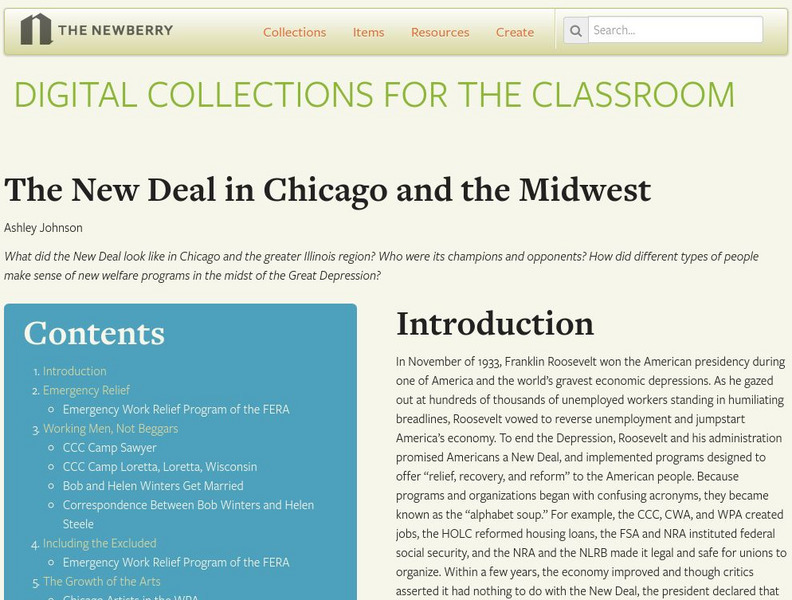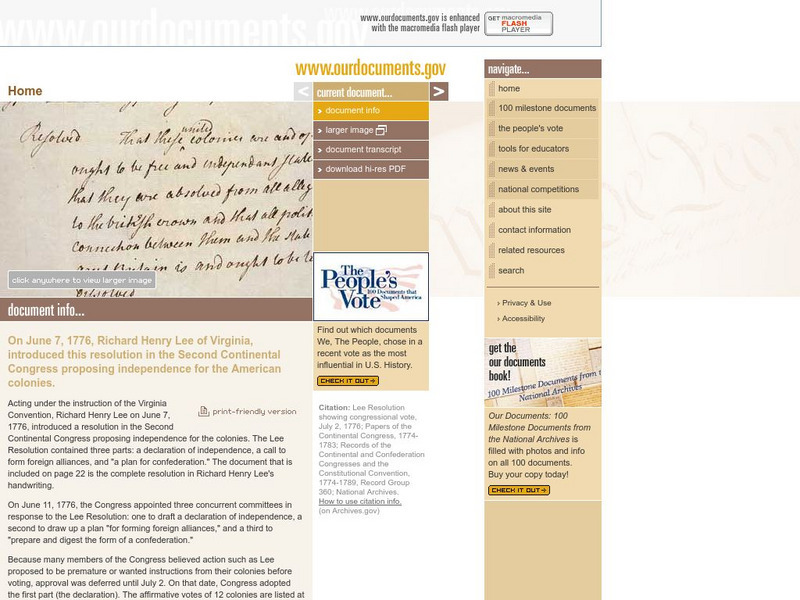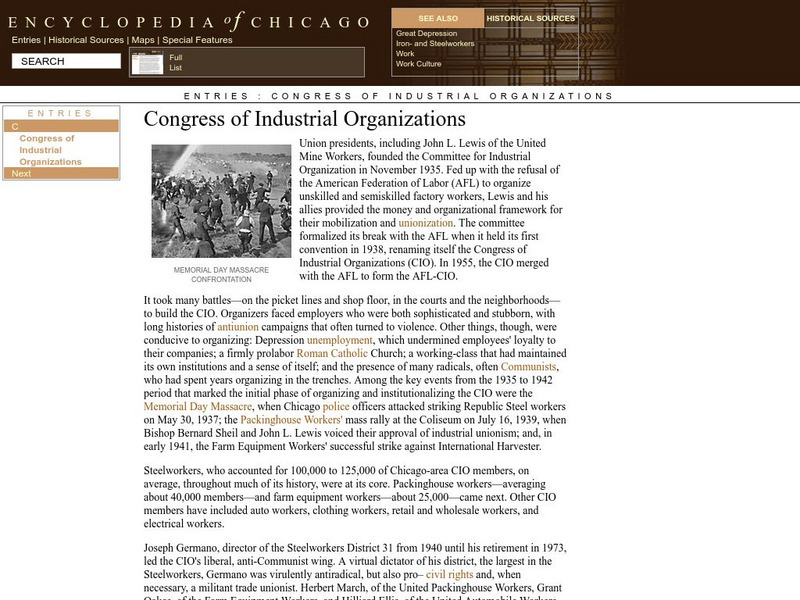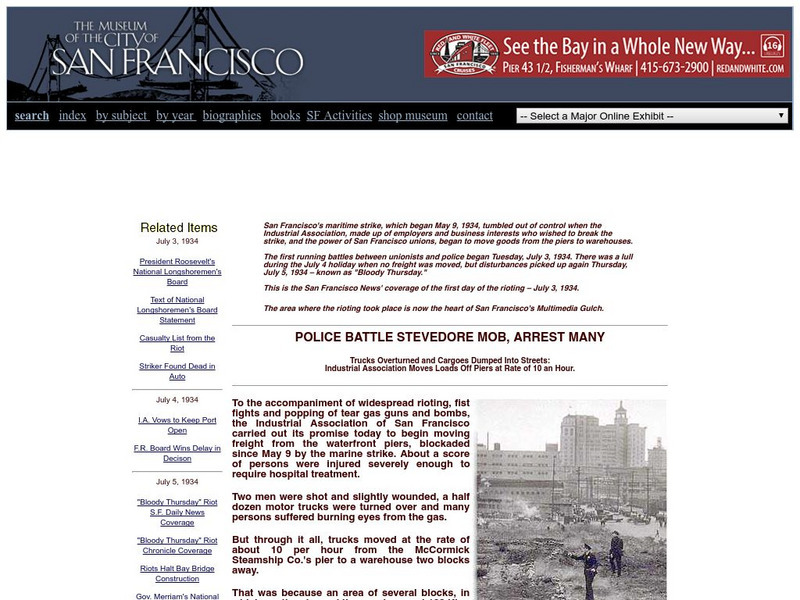San Diego State University
San Diego State University: How Industrial Unionism Was Won
From Walter Lindner's Progressive Party pamphlet, this detailed description of the Flint sit-down strike of 1936-1937 outlines the causes and results of the UAW's collective action.
Calisphere: University of California Libraries
Univ. Of California: Calisphere: Great Depression: San Francisco General Strike
Original photographs highlight the General Strike of San Francisco in 1934.
Stanford University
Beyond the Bubble: Unions in Paterson, New Jersey
[Free Registration/Login Required] An excerpt from an interview with a textile factory worker named Marianna Costa. In the interview, Costa talks about working conditions at the Arrow Piece Dye Works in Paterson, New Jersey, prior to the...
The Newberry Library
Newberry Library: The New Deal in Chicago and the Midwest
Newberry Library primary source materials for students studying the New Deal. Students examine New Deal programs and determine how people made sense of the new welfare program.
Library of Congress
Loc: Labor Unions During the Great Depression and New Deal
This learning page features an overview of labor relations during the 1930s with links to many primary source documents from the era.
University of Groningen
American History: Outlines: The Rise of Industrial Unions
Article outlines the rise of industrial unions during the 1920s and 30s and the impact unions had on politics.
Digital History
Digital History: Wagner Act
Read about the growth of labor unions during the 1930s as the Great Depression continued, due to the passage of the Wagner Act. Find out about the strikes and the conflict between labor and management, as well as conflict within the...
Wikimedia
Wikipedia: National Labor Relations Act
Wikipedia offers information on the National Labor Relations Act or Wagner Act. Includes background, content, controversies that arose, and criticisms of the Act, along with many links to more information.
US National Archives
Our Documents: National Labor Relations Act (1935)
Explore the original document that established the National Labor Relations Board written in 1935. Also known as the Wagner Act, its intention was to give employees the right to form unions and to engage in collective bargaining.
Other
Encyclopedia of Chicago: Congress of Industrial Organizations
A good summary of the establishment of the Congress of Industrial Organizations and the reasons why John L. Lewis founded it. Read about the roadblocks unskilled and semi-skilled labor overcame to organize.
New Deal Network
New Deal Network: Big Steel, Little Steel, and c.i.o.
An article from the July 31, 1937 edition from The Nation magazine discussing the relationship between Big Steel, Little Steel, and the Committee of Industrial Organization (CIO). Written with a great deal of irony.
New Deal Network
New Deal Network: The Nation: It's War in Youngstown
A contemporary article from the magazine, The Nation, which describes the steel strike in Youngstown, Ohio, in June 1937. Read about the background of the strike, and follow the author's ordeal as she was arrested, despite her press...
Constitutional Rights Foundation
Constitutional Rights Foundation: Labor and Law
Explore the rise of unions in the United States in the early 1900's. Understand Roosevelt's role in unions, the Wagner Act, and sit down strikes.
US Senate
U.s. Senate: Robert Wagner: A Featured Biography
Short biographical essay on Robert F. Wagner, author of the Social Security Act and the Wagner Labor Act.
Museum of the City of San Francisco
Virtual Museum of the City of San Francisco: Bloody Thursday Riots
Article from the San Francisco News, July 3, 1934, reports on a union strike which occured in the San Fransico area. May be a bit violent for young students to read.
University of Washington
University of Washington: United Auto Workers (Uaw) Locals 1937 1949
History of the United Auto Workers (UAW) with maps showing the spread of the UAW from 1939 through the late 1940s.
Curated OER
Encyclopedia of Chicago: Congress of Industrial Organizations
A good summary of the establishment of the Congress of Industrial Organizations and the reasons why John L. Lewis founded it. Read about the roadblocks unskilled and semi-skilled labor overcame to organize.













